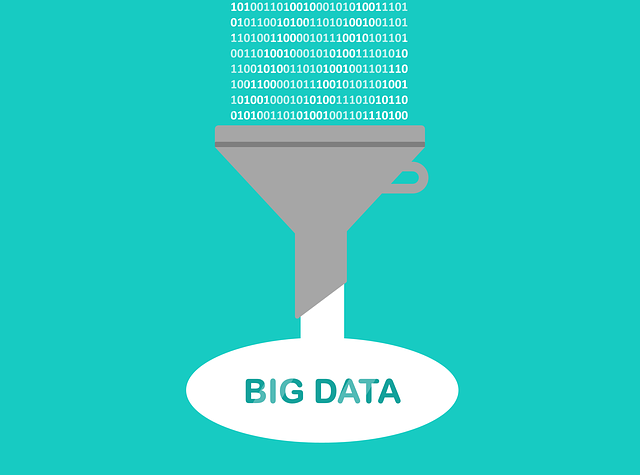Data is everywhere in the modern economy, and businesses of all sizes use it. Extracting useful information from data, however, requires a strategic approach and the right tools. Small- and medium-sized businesses (SMBs) that are willing to invest wisely in big data solutions can gain valuable insights, improve products and services, market more effectively to the right audience, and streamline operations.
SMB Analytics and Big Data Solutions
The importance of data in the current business landscape is undeniable, but using data effectively can be a challenge, especially when information is disparate, unstructured, or scattered across multiple systems. Until relatively recently, big data projects required more resources than most small businesses could spare.
Cloud computing and other technological innovations have changed that though. Big data and analytics for small business are no longer out of reach. In fact, companies that fail to glean useful insights from the available data are likely to find themselves struggling to keep pace.
What Is Big Data?
Big data refers to the large quantities of structured and unstructured information that is created by the millisecond in the digital realm. Analysis of this data can provide vital insights about customers, internal business processes, and more. Potential sources of information that can be classified as big data include the following:
- Business databases and customer relationship management (CRM) systems;
- Payment processing systems and other transactional software and applications;
- Internet of things (IoT) sensors and equipment;
- Data logs (records of activity on a specific device, server, or network);
- Email;
- Text documents;
- Web analytics;
- Mobile applications;
- Audio files, images, and videos; and
- Social media sites and networks.
The raw data extracted from these sources can be analyzed to provide a deeper understanding of customers, employees, and operations. Unstructured and disparate data can be pre-processed by big data solutions that mine or otherwise prepare it for further analysis.
How to Use SMB Analytics and Big Data Solutions
In the past, analyzing large quantities of data required the expertise of a data scientist or at least someone with some advanced technical education in the field. This kind of analysis also demanded a lot of resources for data processing and storage. But cloud technology, software as a service (SaaS), and other technological advancements have made it possible for non-technical users to gather, keep, process, and draw meaning from large sets of data by using off-site resources and data analysis tools and applications.
Advanced analytics for small business can benefit a company in multiple ways. Information derived from various big data sources can inform business practices in these areas and more:
- Targeted marketing;
- Customer service and support;
- Internal processes, procedures, and operations;
- Human resources management;
- Branding, online presence, and social media interactions;
- Product and service offerings; and
- Company and market forecasting.
Many SMB owners and leaders are aware of the importance of data but have concerns about their company’s capacity for using data effectively. These apprehensions should not prevent companies from considering options for SMB analytics and big data, but there are potential pitfalls of which company leaders should be aware.
Dirty Data—and Other Potential Pitfalls
The old computing adage “garbage in, garbage out” is an essential tenet for using data effectively. Information that is fed into systems that perform analytics needs to be up-to-date, accurate, and trustworthy. If it is not, the results of data analysis will be faulty and potentially misleading. Businesses of all sizes must be able to identify and isolate or quantify bad data that could impact results.
Data misuse and privacy are another area of concern for businesses handling personal information. Before a company embarks on a big data or analytics project, applicable regulations must be reviewed and steps should be taken to ensure data is collected, processed, stored, and managed in compliance with those regulations.
Another potential pitfall in SMB analytics is investing heavily in technology but not in the personnel resources to support it. Artificial intelligence (AI) and machine learning are making incredible things possible in business, but you still need to invest in skilled, educated staff who know what information to collect and which questions your business needs to answer; these employees will be needed to create queries and process big data analytics with a human perspective and a focus on your specific business.
Big Data Solutions for Using Data Effectively
The solutions for using data effectively come in two forms: tools, such as software and applications; and best practices. Some of the tools that can be used to implement SMB analytics for big data include the following:
- SaaS and CRM systems;
- Data processing, conglomeration, cleaning, and mining software;
- Marketing management tools;
- Web analytics platforms, like Google Analytics; and
- AI and machine learning applications.
When it comes to choosing and managing these systems, businesses should follow three primary rules:
- Keep it simple. You don’t need to go all out on a system or systems that do far more than you need. Identify your specific goals and find solutions that will best serve them without a lot of superfluous features.
- Make it easy. A laborious system that requires too much data entry and too many clicks to achieve a goal will deter user adoption.
- Keep it together. While following rule number one, you should also aim for solutions that keep as much data as is practical in a single system. Many CRM systems allow you to perform functions of various aspects of business within a single system. When your data is already localized in one place, analyzing it will become a more attainable goal.
Doing careful research, making practical use of the products available, and following the recommendations above will improve the chances that SMB analytics and big data solutions will work for you.
